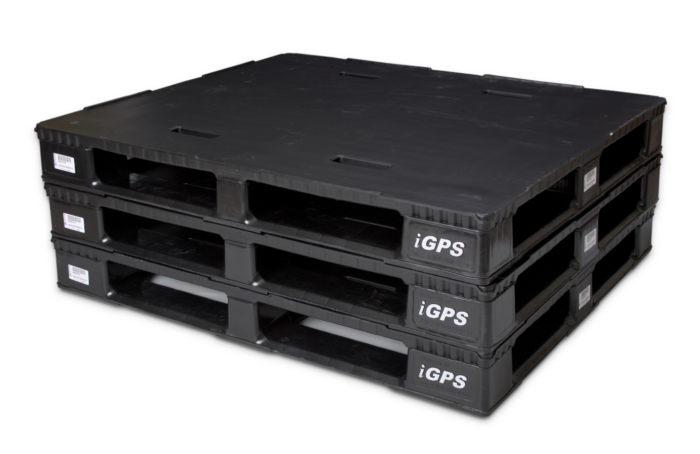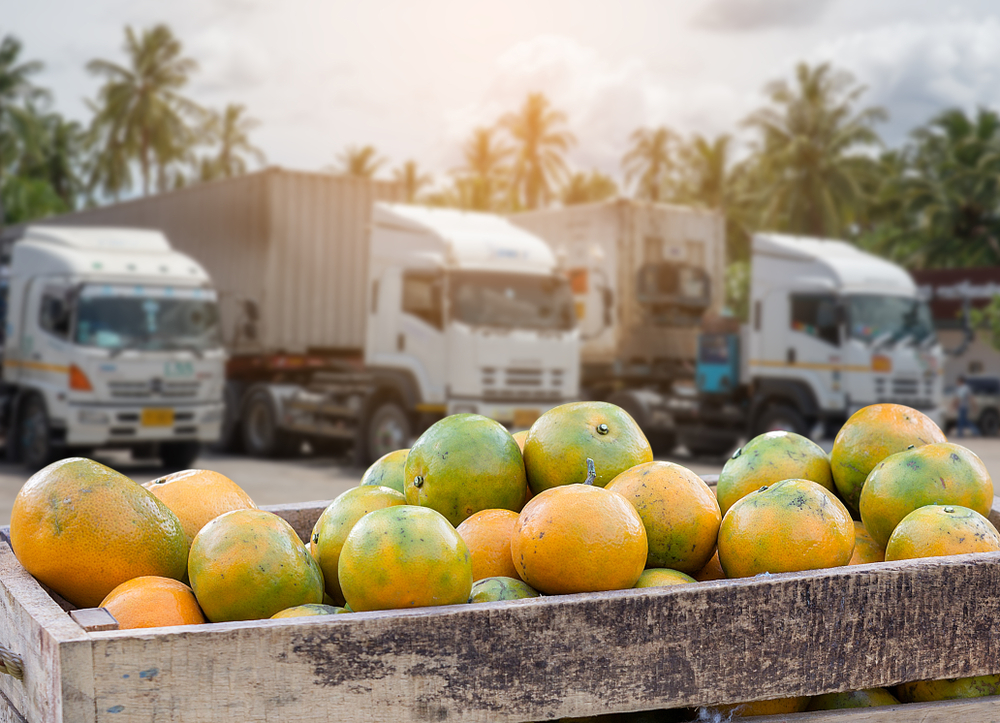With global carbon emissions hitting an all-time high in recent years, the need to achieve more sustainable food transportation has become increasingly apparent to manufacturers and retailers. A 2019 report drafted by the United Nations’ Intergovernmental Panel on Climate Change (IPCC) mentions that a transportation-related carbon footprint can vary from a few percent to more than half of the total carbon footprint associated with food production, distribution, and storage. Shipping containers, pallets, trailers, refrigerated trucks, warehouses, and other vital components of freight transport cumulatively account for these greenhouse gas (GHG) emissions.
Larger corporations are now addressing their carbon footprints and trying to take a greener approach to supply chain management. For most companies, sustainable food transportation in the supply chain essentially boils down to a reduction in fuel consumption through the optimization of existing transportation networks. This can be achieved by lowering the weight of the freight transported—either by reducing the weight of product packaging or by reducing the weight of auxiliary equipment such as pallets.
Food Transportation and Sustainable Product Packaging
Reusable and easily recyclable packaging materials are key to creating a circular and sustainable supply chain. Yet, single-use plastics are preferred and widely used as they are inexpensive, lightweight, and comply with Food Safety Modernization Act (FSMA) regulations regarding sanitary food transportation. Though alternative sustainable packaging materials are available, they are usually limited by one or more of the following issues:
- Cost: The cost of packaging materials directly impacts the total cost of business (TCOB). Biodegradable and eco-friendly packaging alternatives to plastic wraps are usually cost-intensive.
- Weight: Reusable packaging materials such as glass containers keep food fresh but also increase the total weight of bulk food shipments.
- Durability: Durable packaging materials ensure less damage to products during transportation. Biodegradable packaging materials, including recycled cardboard and paper, are often less durable and less moisture-resistant than single-use plastics.
- Food Safety: Keeping food fresh and safe for consumption is one of the biggest factors that alternative packaging materials should address. Many of the most innovative sustainable packaging materials await FDA approvals.
Adopting a new, more sustainable packaging design and material is not usually a feasible option for most companies.
Packaging weight is usually already optimized by manufacturers or producers to save on transport costs, and further weight reduction can weaken packages and lead to more product damage. Another discouragement to businesses considering redesigning their packaging is that product packaging is closely related to a brand’s identity. A new design may confuse customers, and the redesign process also takes a considerable amount of time. As a result, adopting a new, more sustainable packaging design and material is not usually a feasible option for most companies. This shifts the focus to reducing the weight of other components of freight transportation, such as the pallets products are shipped on.
Why Are Wood Pallets Not Sustainable?
 A reusable wood pallet typically weighs around 75-80 pounds, depending on moisture content. Heavier wood pallets significantly reduce the efficiency and sustainability of the supply chain by increasing the overall weight of the shipment for products that cube out. For heavier products that weigh out, a heavy pallet reduces the number of pallets that can be shipped in each freight load. Heavier loads and more trips both lead to higher fuel consumption and carbon emissions.
A reusable wood pallet typically weighs around 75-80 pounds, depending on moisture content. Heavier wood pallets significantly reduce the efficiency and sustainability of the supply chain by increasing the overall weight of the shipment for products that cube out. For heavier products that weigh out, a heavy pallet reduces the number of pallets that can be shipped in each freight load. Heavier loads and more trips both lead to higher fuel consumption and carbon emissions.
Switching to lighter, easy-to-recycle alternatives such as plastic pallets can address the environmental concerns related to food supply chain management.
Wood pallets also have a limited recycling lifespan and many are not recycled. According to the most recent data published by the U.S. Environmental Protection Agency (EPA), only 3 million tons of wood pallets were recycled out of the 11.4 million tons of generated wood pallets and other wood packaging in 2017. This further limits the sustainability of food transportation. Switching to lighter, easy-to-recycle alternatives such as plastic pallets can address the environmental concerns related to food supply chain management while lowering the total cost of business.
Sustainable Food Transportation Using Plastic Pallets
 A high-quality 48-by-40-inch Grocery Manufacturers’ Association (GMA) spec plastic pallet weighs 35 percent less than a typical reusable wood block pallet. For trucks carrying products that weigh out, this gives an advantage over wood pallets by allowing more actual products to be transported in each shipment, ultimately making fewer shipments possible. For products that cube out, lightweight pallets ensure that each load weighs less overall, even though the same amount of products is transported in each trip. Some of the other benefits of plastic pallets over wood ones are:
A high-quality 48-by-40-inch Grocery Manufacturers’ Association (GMA) spec plastic pallet weighs 35 percent less than a typical reusable wood block pallet. For trucks carrying products that weigh out, this gives an advantage over wood pallets by allowing more actual products to be transported in each shipment, ultimately making fewer shipments possible. For products that cube out, lightweight pallets ensure that each load weighs less overall, even though the same amount of products is transported in each trip. Some of the other benefits of plastic pallets over wood ones are:
- Recyclability: Plastic pallets are usually 100-percent recyclable. High-quality plastic pallets can be reused many times, and, at the end of their lifespans, can be recycled into new pallets, thereby offering cradle-to-cradle recyclability.
- Durability: Plastic pallets are more durable and consistent than wood pallets and are therefore better suited for use with automated equipment.
- Food Safety: Unlike wood, plastic is not porous and can be easily cleaned, pressure-washed, or sanitized to remove any contaminants. This makes plastic pallets safe and hygienic for food transport.
- Maintenance: Plastic pallets are easy to handle, easy to maintain, and are less likely to need repair than wood pallets.
- Plastic Pallet Pooling: Renting plastic pallets from a pallet pooling provider that optimizes their transport from customer to customer minimizes empty miles, creating a sustainable and cost-effective circular supply chain.
It might sound a little counterintuitive, but plastic pallets offer the most feasible environmentally friendly alternative to wood pallets. Sustainable food transportation is a move toward creating a more efficient supply chain, and switching to longer-lasting plastic pallets offers immediate benefits in terms of both sustainability and cost. The positive environmental impact of using plastic pallets for food transportation can be assessed through a greenhouse gas calculator.
iGPS plastic pallets generate savings in shipping expenses while moving your business toward more sustainable food transportation. In fact, iGPS has been recently recognized for contributing to sustainability in the logistics industry.
Recyclable and durable iGPS plastic pallets can help you cut down on carbon emissions as well as decrease your total cost of business. To learn more about plastic pallets, give our team a call at 1-800-884-0225, email a specialist at switch@igps.net, or visit our contact page.



